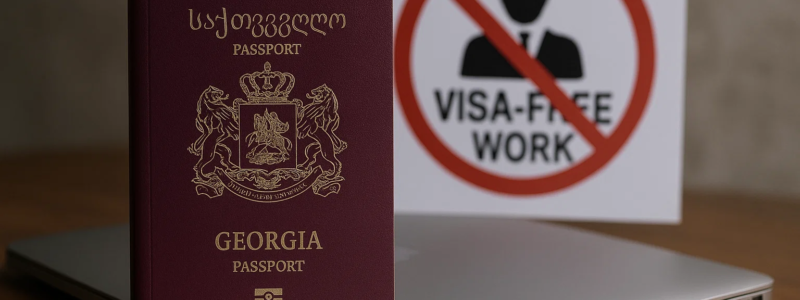
New rules will come into force in Georgia that will abolish the possibility of working without a permit for citizens of countries with a visa-free regime. From 2026, legal employment will require a work permit and a corresponding residence permit, according to the Serbian Economist Telegram channel.
On June 26, the country’s parliament adopted amendments to the laws “On Labor Migration” and “On the Legal Status of Foreigners.” Now, any foreigner who does not have a permanent residence permit will be required to obtain a work permit, even if they entered the country under a visa-free regime.
Key changes
• The visa-free regime no longer grants the right to work — it only applies to entry and short-term stays.
• The concepts of “labor migrant” and “self-employed foreigner” are introduced — both categories must obtain a permit.
• Employers are required to complete the paperwork for foreign employees before they officially start work.
Who will be affected by the new rules?
According to Geostat, fewer than 3,800 labor migrants were officially registered in 2015–2023, while the actual number of foreigners working in the country is significantly higher — in 2022–2023 alone, there were over 239,000 foreigners in Georgia. Many of them worked illegally.
The changes will have the greatest impact on citizens of:
• Russia — according to various estimates, between 80,000 and 120,000 Russians live in Georgia, a significant proportion of whom work remotely or in the service sector without formal permission;
• Georgia’s neighbors (Armenia, Azerbaijan);
• Ukraine;
• the Middle East;
• South Asia;
• some countries in Europe and Latin America.
For Russians, who have become one of the largest groups of foreigners in Georgia since 2022, the new rules may lead to the need for mass registration of work permits. Otherwise, there is a risk of fines and the inability to continue working.
The reform aims to legalize the labor market and protect the rights of Georgian citizens. It closes a loophole that allows foreigners to work without a visa and creates a new legal framework for tens of thousands of people. This will particularly affect citizens of the Russian Federation and CIS countries, who in recent years have made up the core of the foreign presence in Georgia’s economy.
Source: https://t.me/relocationrs